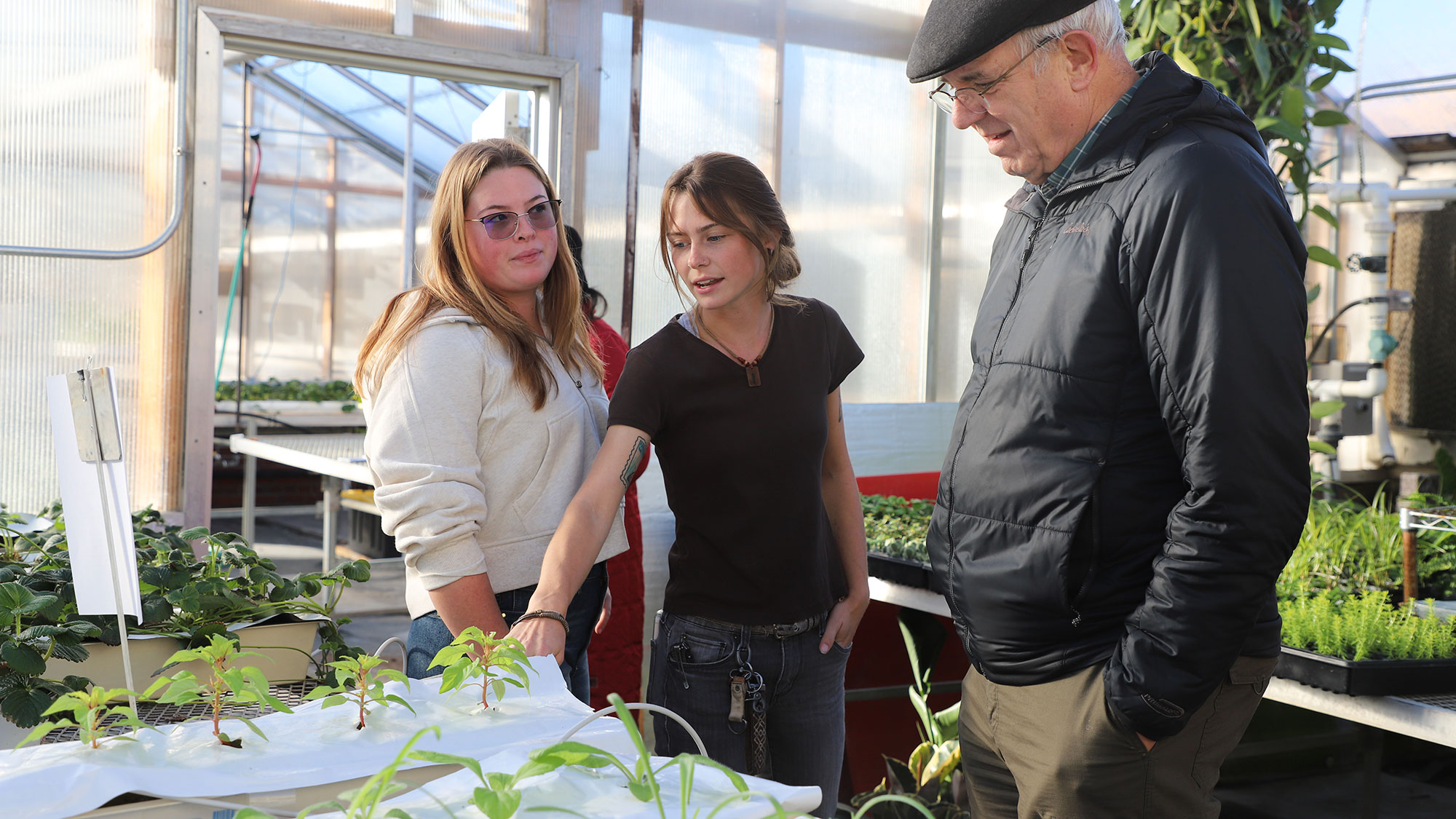
by Brock Lohr | Backyard Farmer
AGRONOMY & HORTICULTURE: HYDROPONICS FOR GROWING POPULATIONS
As the global population continues to rise, expected to surpass 9.7 billion by 2050, the demand for food is skyrocketing. The strain on arable land, coupled with water scarcity, has catalyzed the need for innovative agricultural solutions. One such approach is hydroponics, an advanced method of soil-less farming that could redefine how food is produced. At the University of Nebraska–Lincoln’s East Campus, students in the Hydroponics for Growing Populations class are tackling these pressing issues hands-on.
In a greenhouse brimming with vegetables, herbs, fruits and flowers, students immerse themselves in designing and managing hydroponic systems that maximize efficiency and sustainability. The program highlights how science, creativity, and entrepreneurship can converge to address global food challenges.
A Future in Hydroponics
Hydroponics is increasingly viewed as a cornerstone in the future of agriculture. Its controlled environment allows crops to grow vertically in urban areas, conserve up to 90% less water than traditional farming, and reduce the need for pesticides. Stacy Adams, a professor of practice in Agronomy & Horticulture, emphasizes the potential for young people to become entrepreneurs, particularly in areas where land availability or affordability is a challenge.
Students are engaging in discussions about food security in urban centers and global agricultural demands. They design hydroponic systems that regulate nutrient delivery, measure water pH, and optimize energy use. These practical applications mirror the challenges real-world farmers face, preparing students for a future where sustainable farming is essential.
Bridging Knowledge Gaps
One of the highlights of the semester was the open house on November 21, where students presented their projects to the public. Visitors, intrigued by the systems, posed thought-provoking questions such as, "Without soil, do you lose key nutrients in food?" These interactions prompted students to explain how hydroponic systems use nutrient-rich solutions to provide plants with precise "recipes" for growth, ensuring the same—if not better—nutritional quality as soil-grown produce.
This dialogue is vital as public awareness and acceptance of hydroponics grow. “Guests are often amazed when they realize how hydroponics mimics and even enhances traditional agricultural practices,” Adams notes.
STUDENTS AT THE FOREFRONT
For many students, this course is their first introduction to hydroponics, sparking newfound passion and creativity. Sara May, a horticulture major, reflects, “After taking this class, I’ve grown a passion for it. It’s been a lot of fun.” Beyond the technical skills, students learn problem-solving and systems thinking, skills that are crucial in addressing the broader challenges of feeding a growing population.
Hydroponics: A Scalable Solution
Hydroponics is not just an educational experiment; it’s a scalable solution to real-world problems. Globally, urban areas are seeing a surge in vertical farms, which can produce up to ten times the yield per acre compared to traditional methods. Cities like Singapore, Tokyo, and New York are at the forefront, integrating hydroponics into urban planning to boost food self-sufficiency.
For rural and resource-scarce regions, hydroponics provides an opportunity to overcome soil degradation and limited water supplies. Innovations like solar-powered hydroponic systems make it possible to grow food in areas previously deemed unsuitable for agriculture.
A Greenhouse for the Future
The UNL program exemplifies how education can foster solutions for global challenges. By equipping students with the tools to innovate, the Hydroponics for Growing Populations class inspires a new generation of agriculturists and entrepreneurs to think beyond traditional farming.
As the population continues to grow, the question isn’t whether we can feed the world, but how we can do so sustainably. Programs like this one offer a glimpse of hope—and proof that the solutions are already taking root.
See Growing Population Sparks Innovation: Hydroponics and the Future of Food Security by Nebraska Institute of Agriculture and Natural Resources on Exposure.
More details at: https://go.unl.edu/72gq